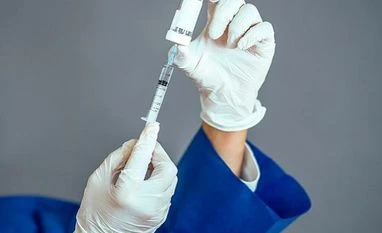They raised $5.6 billion of investments in the first half of this year, down 13 per cent from a year ago, research from Singapore-based venture capital firm Cento Ventures released on Friday showed. That compares with a 16 per cent drop in India and 21 per cent fall in the EU. North America saw declines of 8 per cent during the same period, according to the report, which covered almost 3,500 deals. Read more here.
Let’s look at the global statistics:
Total Confirmed Cases: 22,413,126
Change Over Yesterday: 270,109
Total Deaths: 793,763
Total Recovered: 14,544,118
Nations hit with most cases: US (5,575,323), Brazil (3,501,975), India (2,905,825), Russia (939,833) and South Africa (599,940)
Source: Johns Hopkins Coronavirus Research Center
Coronavirus cases rise in Europe, crowded events in US raise concerns: After months of decline, the coronavirus is now “steadily increasing” each week in Europe, a worrisome resurgence believed to be driven by infections among younger people, WHO said. In the US, Centers for Disease Prevention and Control expressed optimism about one region: the South. States there have begun “to turn the tide.” Read more here.
Also read: France virus cases spike to 4,700 in a day
UK retail sales rise, giving some good news to bruised sector: UK retail sales rose more than economists forecast, giving a battered sector a brief respite from a litany of bad news. Sales increased 2 per cent in July from June, according to official data. Non-food sales jumped 10 per cent, though they remain below their pre-virus level. Total volumes, including fuel, climbed above their pre-pandemic levels. Read more here.
Also read: UK government debt tops 2 trillion pounds for first time
Alibaba reports bounce back in e-commerce: Alibaba Group’s revenue growth returned to levels not seen since the pandemic, fueling hopes of a Chinese economic recovery despite worsening US relations. China’s most valuable corporation reported better-than-expected 34 per cent sales growth in the June quarter, a shade off the 38 per cent it managed in the December quarter. Read more here.
J&J plans huge vaccine study: Johnson & Johnson has confirmed that it plans to test its Covid-19 vaccine in as many as 60,000 people, twice the number of other big trials being conducted in the US. The company first posted the design for the trial on August 10, and it is set to begin in late September. Read more here.
Asia-Pacific shares boosted by US tech rally: Hong Kong’s Hang Seng led the region with gains of 1.3 per cent while China’s CSI 300- and Shenzhen-listed stocks rose 0.8 per cent. Japan’s benchmark Topix index was 0.3 per cent higher. Futures markets showed US stocks on track for a slight rise at the open on Wall Street, with the S&P 500 tipped to gain 0.2 per cent. Read more here.
Specials
Info-graphic: Latest on the vaccine development
In the race to develop weapons against Covid-19, vaccinations are key. According to WHO, 169 candidates are under development and 30 have started clinical trials. Some might be put into use as soon as this fall. Here’s an explainer about the leaders and the global stakes. See here
Why Spain is seeing a second wave
Spain's government admits the numbers are "not what we want to see", but points to key differences compared to the spring. Only around 3 per cent of current cases require hospital treatment, less than 0.5 per cent need intensive care and the current death rate is as low as 0.3 per cent. However, healthcare is a competence of Spain. Growers and packing companies have been criticised for not providing accommodation for migrant workers. Worst of all, more than 55 care homes for the elderly have registered cases since the end of the state of emergency. Read more here
Youthful Pakistan appears to avoid worst of pandemic
With a weak healthcare system, large population and many poorer families living in crowded living conditions, Pakistan seemed in danger from the outset of a catastrophic toll from coronavirus. The danger appeared to increase in June, when doctors in major cities reported that their hospitals were overwhelmed with patients. Intensive care units in the largest hospitals filled up, and families were forced to shuttle relatives around in the search for a bed. But just a few weeks later, hospital admissions appeared to fall drastically. Read here to know why
Cancer doctors worried about possible spikes, as people avoid care during the pandemic
To read the full story, Subscribe Now at just Rs 249 a month
Already a subscriber? Log in
Subscribe To BS Premium
₹249
Renews automatically
₹1699₹1999
Opt for auto renewal and save Rs. 300 Renews automatically
₹1999
What you get on BS Premium?
-
Unlock 30+ premium stories daily hand-picked by our editors, across devices on browser and app.
-
Pick your 5 favourite companies, get a daily email with all news updates on them.
Full access to our intuitive epaper - clip, save, share articles from any device; newspaper archives from 2006.
Preferential invites to Business Standard events.
Curated newsletters on markets, personal finance, policy & politics, start-ups, technology, and more.
Need More Information - write to us at assist@bsmail.in
)